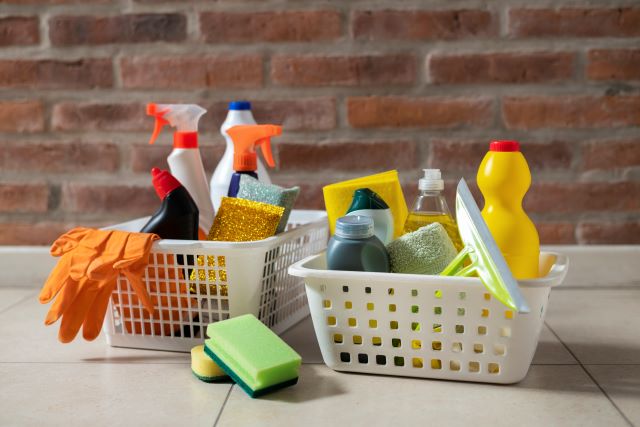Toxic Chemicals In Your Household

It is commonly believed that most pollution is found in industrial areas, near landfills and factories. While we can certainly avoid such places, most of our time is spent indoors, not in natural park areas. This accounts for approximately 90% of our entire lives. For the majority of people, work, education, meals, and sleep all take place within enclosed spaces. These are areas where the air is not refreshed but rather circulates. This is especially relevant now, as many people are not even going outdoors to commute to work due to remote working and studying from home.
According to statistics, the average North American resident uses between 12 to 40 litres of various types of chemicals in their homes. These substances are used for laundry, dishwashing, window cleaning, and toilet cleaning. This also includes various pesticides and fertilizers for gardening. The list of health problems caused by the use of these chemicals is extensive. This list includes respiratory issues, endocrine system problems, skin and eye irritations, digestive problems, and even various types of cancer.
According to the “Environmental Protection Agency (EPA) (opens in a new tab)”, indoor toxin concentrations are 2 to 5 times higher than outdoor concentrations in the same area.
The more effective a cleaning product is, the greater the potential danger it poses to occupants. Hospitals are filled with patients complaining of burns, rashes, sore throats, nausea, and vomiting due to cleaning product poisoning. About 10% of all poisonings from toxic substances occur when using toxic cleaning agents.
In addition to the obvious symptoms of toxin poisoning, there are more subtle ones. These symptoms are caused not by acute poisoning, but by prolonged exposure to low doses of toxic substances. These include headaches, sleep problems, and chronic fatigue. These symptoms are highly nonspecific, and they are often difficult to attribute to the use of toxic chemicals. You might never suspect that toxins are causing your symptoms until you remove these toxic agents from your home or spend a few weeks in the fresh air.
Anyone in a space where such substances are used or stored can develop chronic symptoms. This could be dishwashing detergent that wasn’t completely rinsed off plates, laundry detergent that wasn’t fully removed from clothing, or a cleaning solution added to water for mopping floors that evaporated from the treated surface. Simply setting these products aside won’t help, as they emit vapours quite strongly. It’s essential to remove all toxic chemicals from the environment.
Transitioning to less toxic alternatives is now easier than ever. These options are less aggressive and much safer.
Let me provide an example: laundry detergent. Ordinary laundry detergent contains several carcinogenic and genetically mutagenic components. All these chemicals also pollute the environment when they enter it through sewage after washing.
If you want to learn more about the components of your household cleaning products, consult the Environmental Working Group (EWG) website. This nonprofit organization of American activists specializes in researching hazardous substances in our environment. There you can find recommendations for safer alternatives in EWG’s Guide to Healthy Cleaning.
What can you do to improve your health?
Avoid strong-smelling artificial products, such as deodorants and air fresheners. They can cause various neurological problems.
Use cleaning products with less toxic ingredients. A good reference for less harmful products, including brand recommendations, can be found on the website www.ewg.com.
Avoid using bleaches, colour enhancers, and masking agents.
Refuse chemical dry cleaning.
Reduce the quantity of cleaning products. In reality, a very small amount is sufficient, far less than what is usually indicated on the packaging.
Periodic detoxification of the body can help reduce the toxic burden on the body and increase your resilience to toxins.
If, after discontinuing the use of toxic household chemicals, you still experience symptoms of chronic poisoning, consult a specialist in environmental health.
